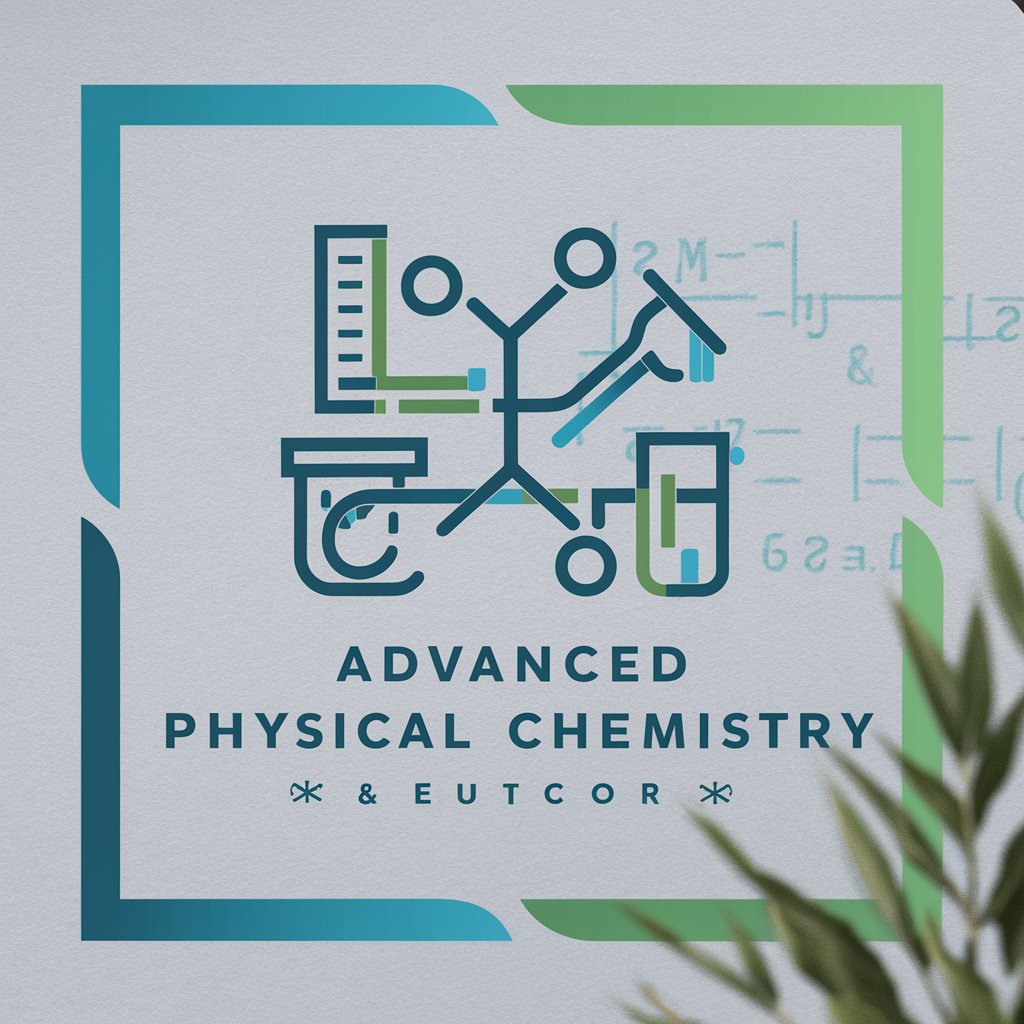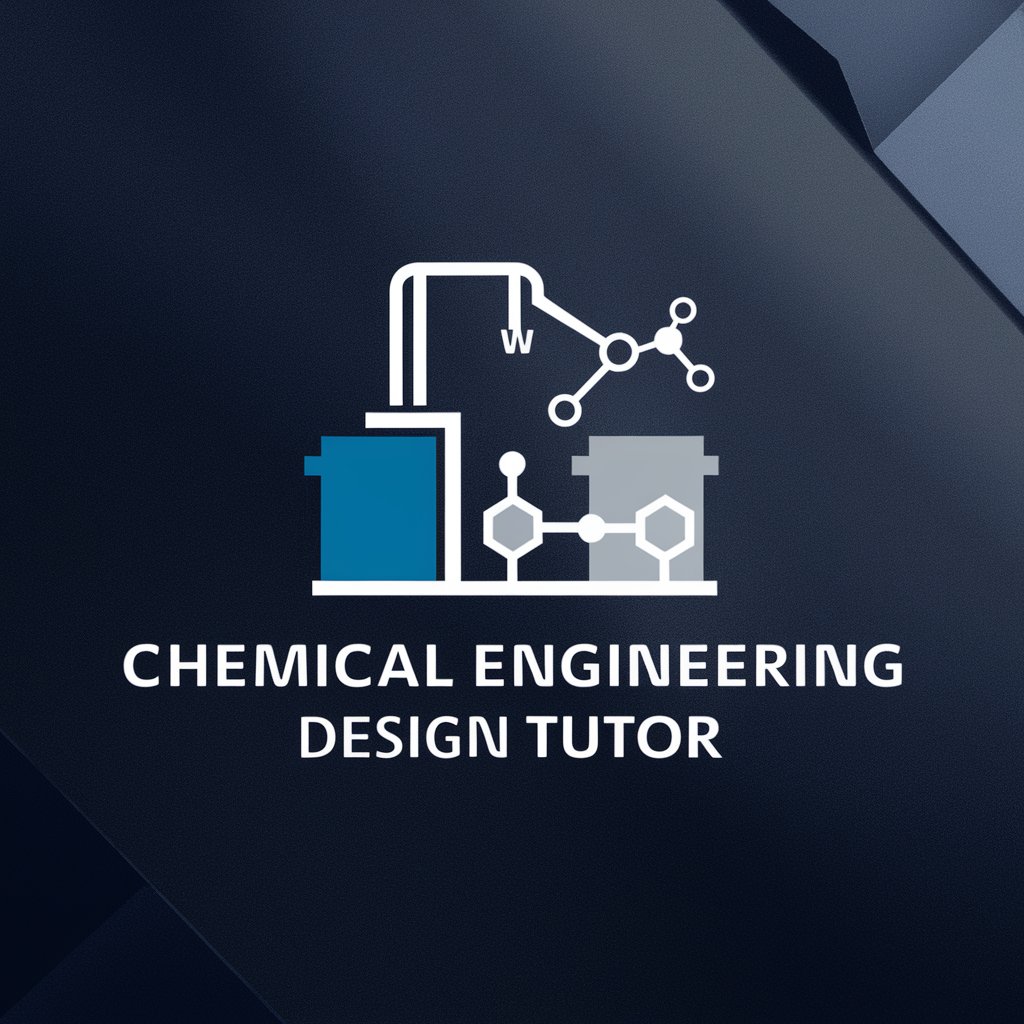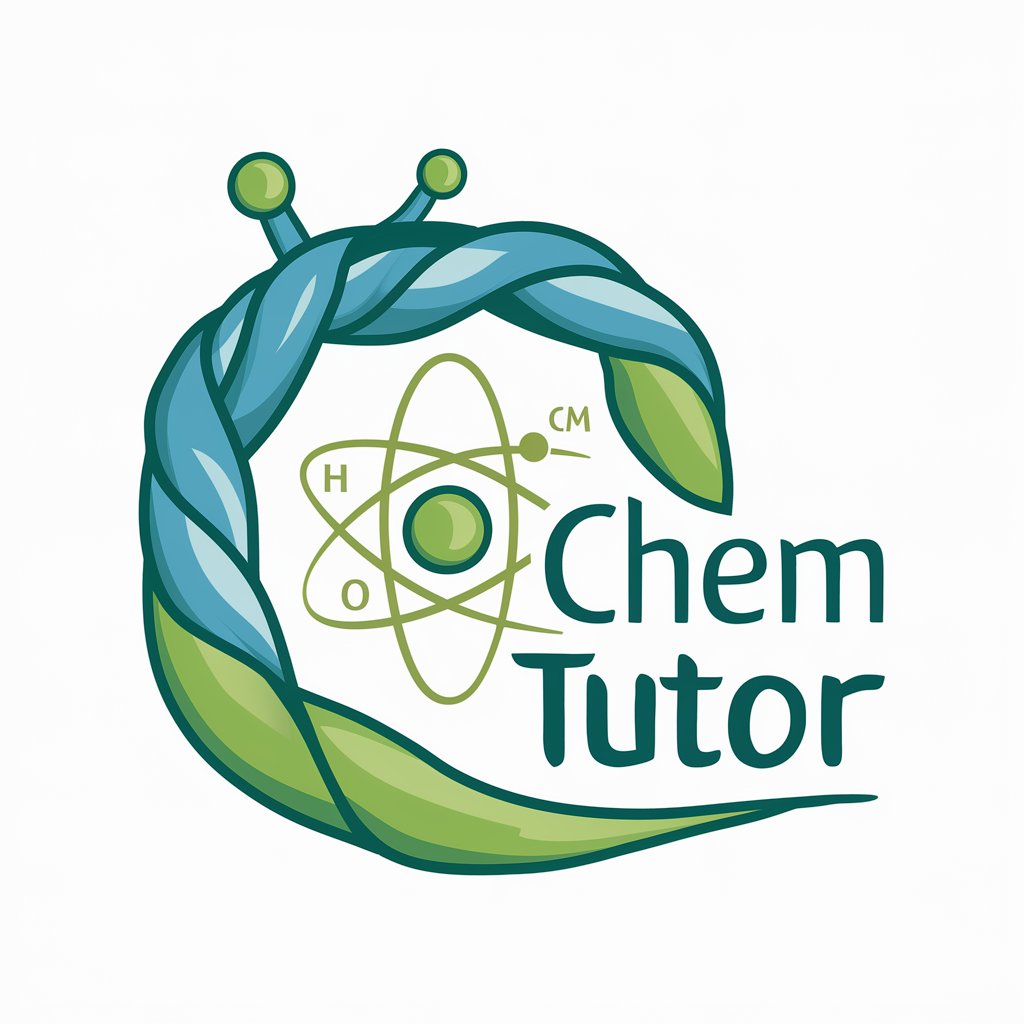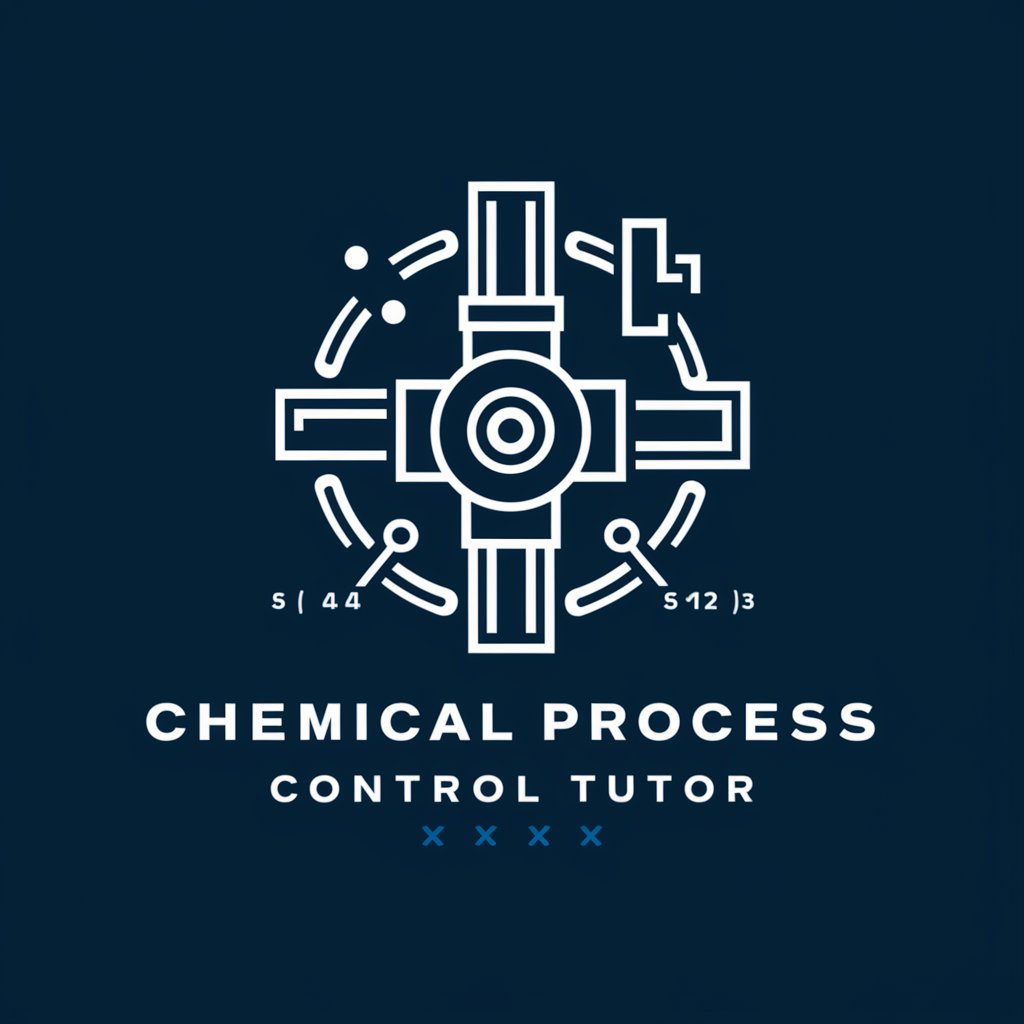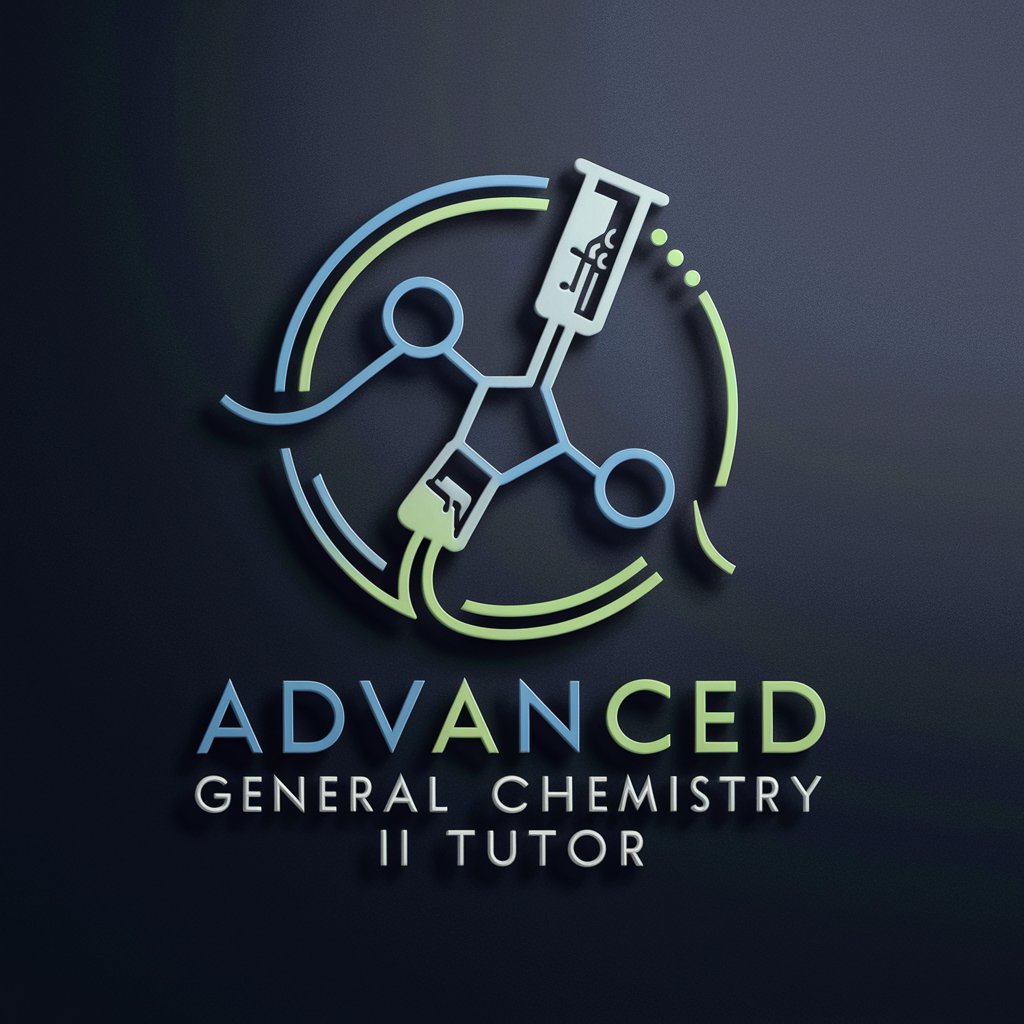
Heterogeneous Catalysts Tutor - Expertise in Heterogeneous Catalysis
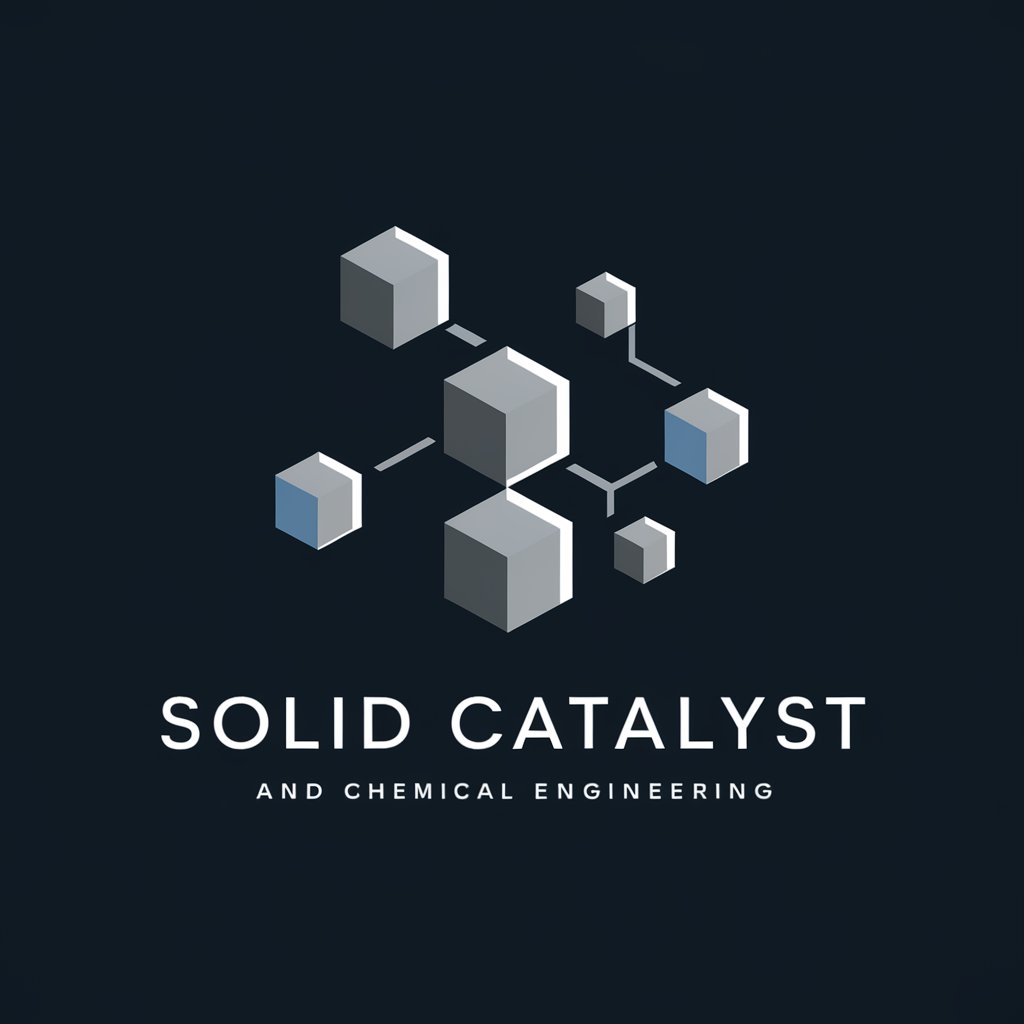
Welcome! I'm here to help with all your heterogeneous catalysis questions.
Powering Catalysis with AI Insight
Explain the principles of heterogeneous catalysis and how it differs from homogeneous catalysis.
What are the key factors in selecting an appropriate solid catalyst for a specific chemical reaction?
Describe the mechanisms of adsorption and desorption in heterogeneous catalysis.
How can innovative catalyst designs improve the efficiency of industrial chemical processes?
Get Embed Code
Understanding Heterogeneous Catalysts Tutor
Heterogeneous Catalysts Tutor is a specialized AI assistant designed to facilitate the understanding and application of heterogeneous catalysis. This tool is tailored for students and professionals in chemical engineering and related fields, providing detailed, nuanced explanations of concepts, mechanisms, and practical applications of solid catalysts in chemical processes. It aims to enhance learning by offering guidance on selecting appropriate catalysts for specific reactions, troubleshooting catalytic process issues, and exploring the development of new catalytic materials and methods. An example scenario illustrating its purpose could be a graduate student designing a catalyst for an environmentally friendly reaction process. The Tutor would provide detailed insights into catalyst selection based on reaction conditions, the material's surface properties, and its environmental impact, supporting the student in developing an innovative catalytic solution. Powered by ChatGPT-4o。

Core Functions of Heterogeneous Catalysts Tutor
Educational Support
Example
Explaining the principles of adsorption and surface reactions on catalysts.
Scenario
A student struggling to understand how adsorption energies influence catalytic activity receives a comprehensive explanation, including relevant mathematical models and examples of industrially important reactions, such as hydrogenation processes.
Catalyst Selection Guidance
Example
Assisting in choosing the right catalyst for a specific chemical reaction.
Scenario
An R&D chemist is tasked with improving the yield of a pharmaceutical synthesis reaction. The Tutor provides insights into selecting a catalyst that offers high selectivity and activity under the desired reaction conditions, potentially suggesting the use of a palladium-based catalyst for a coupling reaction.
Process Optimization
Example
Optimizing reaction conditions to maximize catalytic efficiency.
Scenario
A chemical engineer seeks to optimize a catalytic process for biofuel production. The Tutor advises on adjusting parameters like temperature, pressure, and gas flow rates to enhance catalyst performance and longevity, while also considering economic and environmental impacts.
Troubleshooting and Problem Solving
Example
Identifying and solving issues related to catalyst deactivation.
Scenario
In an industrial setting, a team encounters unexpected catalyst deactivation leading to decreased process efficiency. The Tutor guides them through diagnosing potential causes, such as sintering or poisoning, and suggests strategies for regeneration or replacement of the catalyst.
Innovation and Research Support
Example
Facilitating the development of novel catalytic materials.
Scenario
A graduate student is researching the synthesis of a new catalytic material for CO2 reduction. The Tutor offers guidance on material characterization techniques, theoretical background on reaction mechanisms, and advice on experimental setup for evaluating catalytic performance.
Who Benefits from Heterogeneous Catalysts Tutor?
Chemical Engineering Students
Undergraduate and graduate students will find the Tutor invaluable for deepening their understanding of heterogeneous catalysis principles, solving assignment problems, and supporting their research projects with comprehensive insights into catalyst behavior and reaction engineering.
R&D Chemists
Professionals in research and development, especially those focusing on the synthesis of chemicals, pharmaceuticals, or materials, can utilize the Tutor for guidance on selecting and optimizing catalysts for new processes, enhancing product yields, and improving reaction selectivity and efficiency.
Process Engineers
Engineers working on the scaling up of chemical processes, troubleshooting production issues, or seeking to optimize existing operations will benefit from the Tutor's ability to provide detailed advice on catalyst selection, process parameters, and techniques for improving system performance and sustainability.
Environmental Scientists
Scientists focused on reducing industrial emissions and developing green chemical processes can leverage the Tutor's expertise to explore catalysts that enable more efficient use of resources, lower energy consumption, and reduced byproduct formation in chemical manufacturing.

Guidelines for Using Heterogeneous Catalysts Tutor
1
Initiate your journey at yeschat.ai for a no-cost trial, accessible instantly without the necessity for login or a ChatGPT Plus subscription.
2
Select the 'Heterogeneous Catalysts Tutor' from the available GPT options to specifically focus on catalyst-related queries and learning.
3
Prepare your questions or topics related to heterogeneous catalysts, ensuring they are clear and precise for more effective assistance.
4
Use the tool to explore various aspects of heterogeneous catalysts, including selection criteria, reaction mechanisms, and catalyst optimization techniques.
5
For complex queries or advanced topics, provide as much context as possible to enable more detailed and accurate responses.
Try other advanced and practical GPTs
Quantum Catalyst
Empowering enzyme research with AI
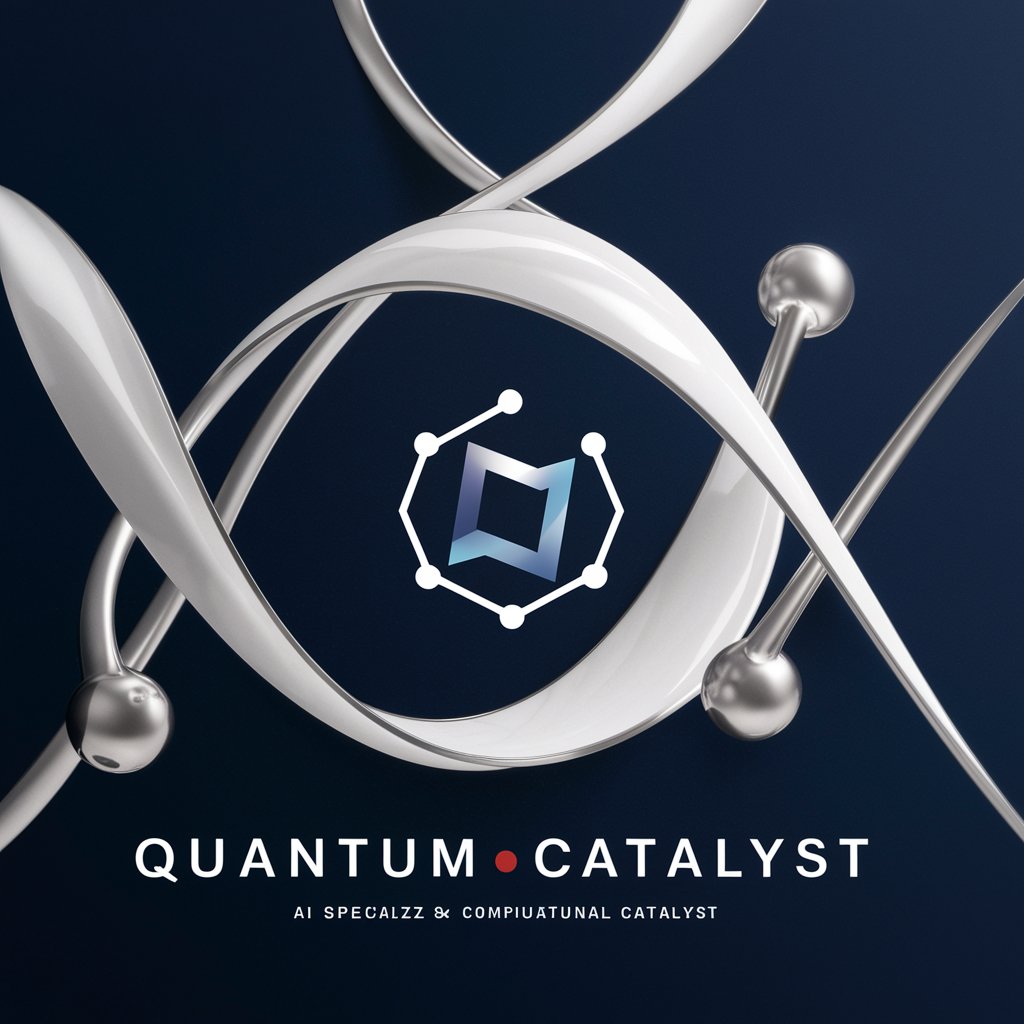
Catalysis in Organic Chemistry Tutor
Empowering Organic Chemistry with AI-driven Catalysis Insights
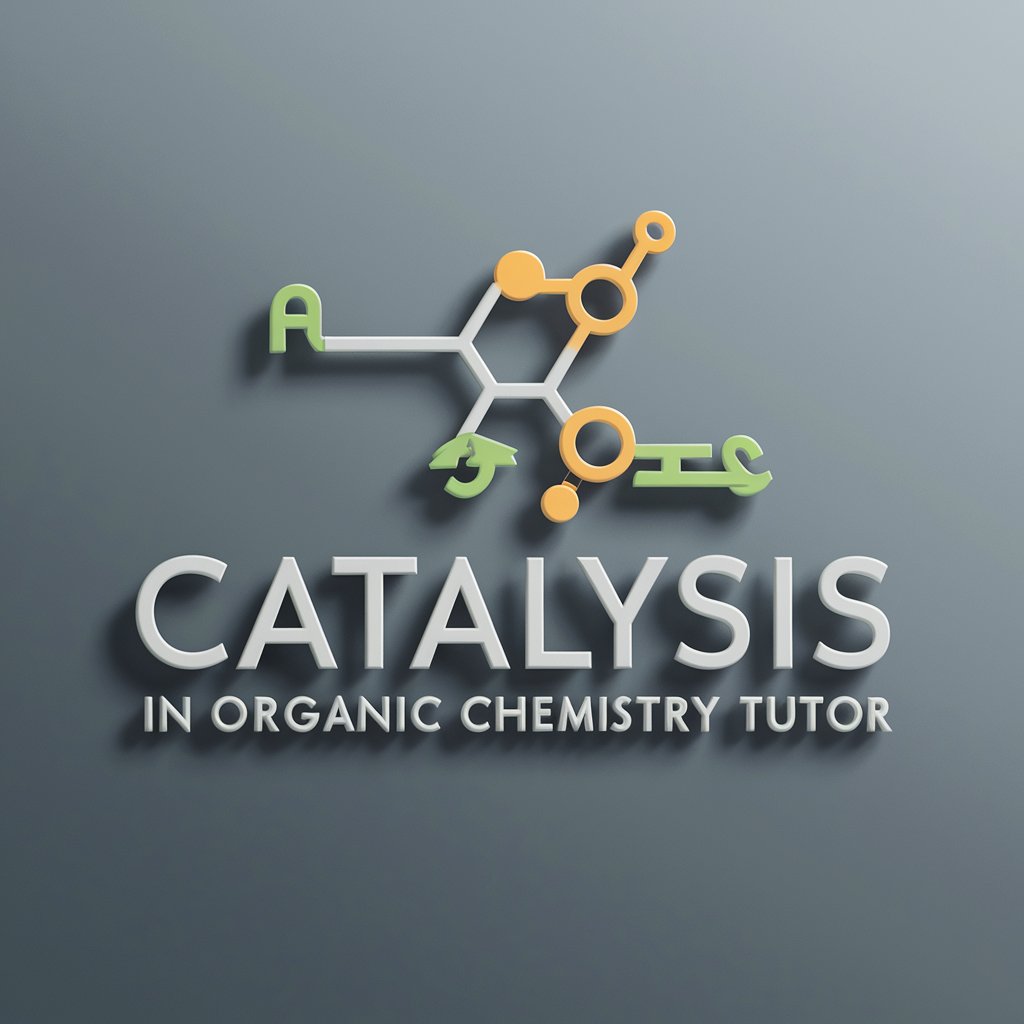
Gestor de Compras
Optimizing Procurement with AI

Cardápio e Compras da Semana
AI-powered healthy meal planning made easy

Compras - Assistência na escolha do melhor produto
Smart AI for Smarter Shopping

PGT LOGISTICS (COMPRAS POR INTERNET)
Streamline your online shopping with AI-powered logistics.

Silver Catalysts for CO2 Electroreduction
Harnessing AI to Empower CO2 Reduction
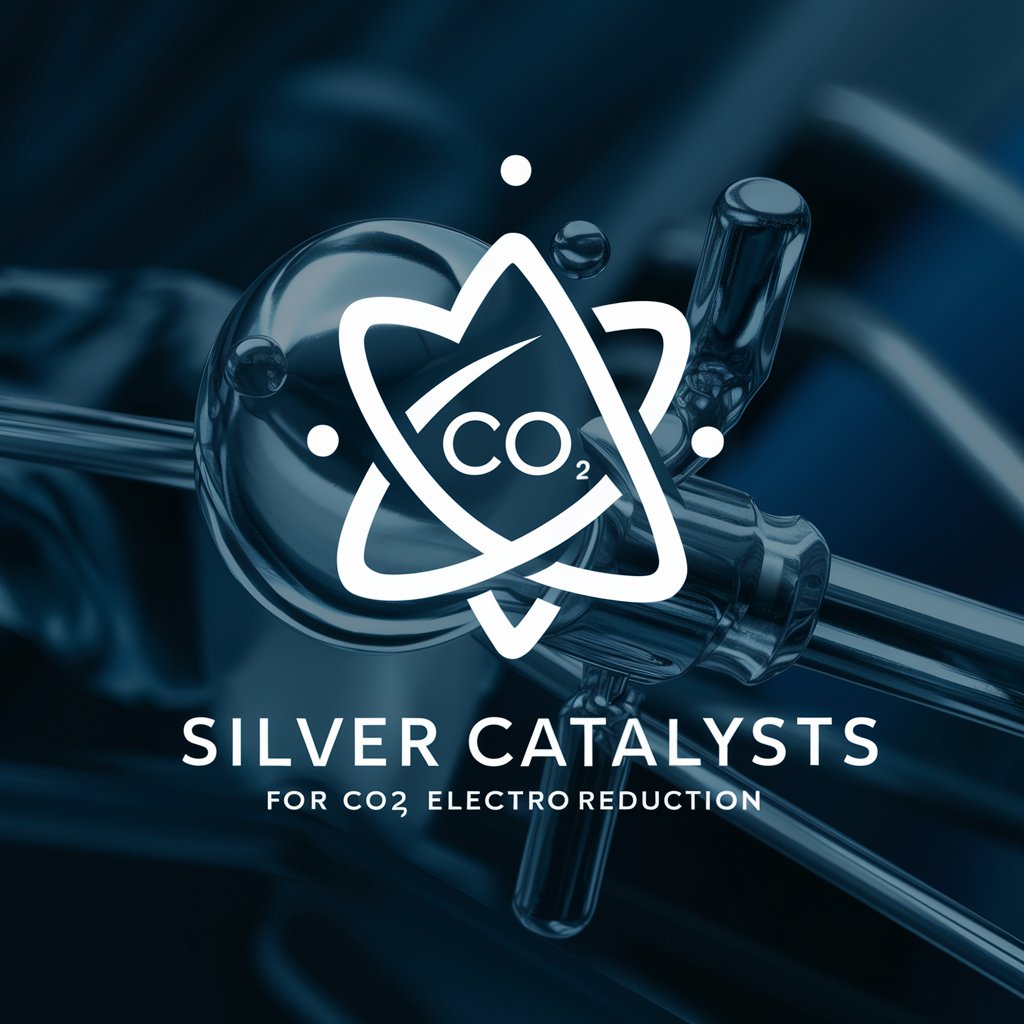
Application Ace from C.C
Empowering Your Job Hunt with AI
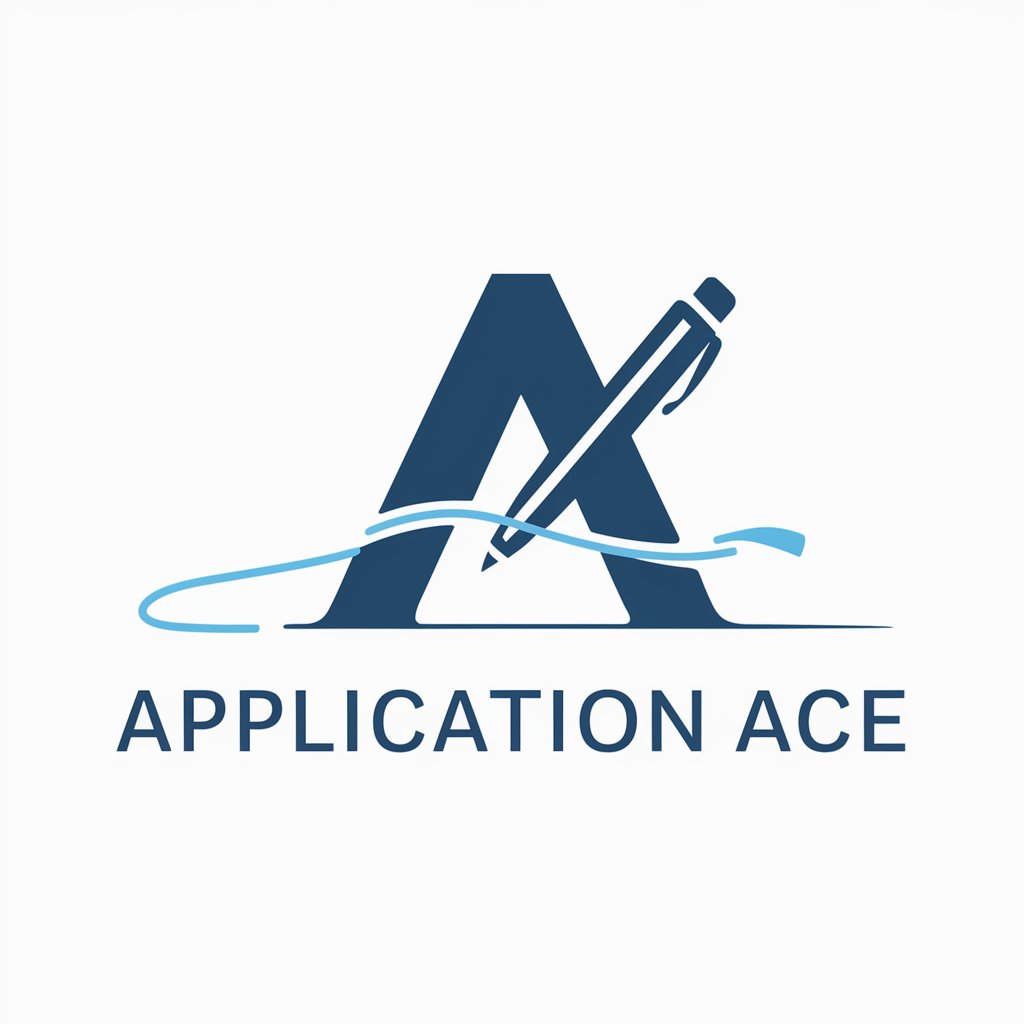
Catalyst Igniter
Igniting Creativity, Driving Change
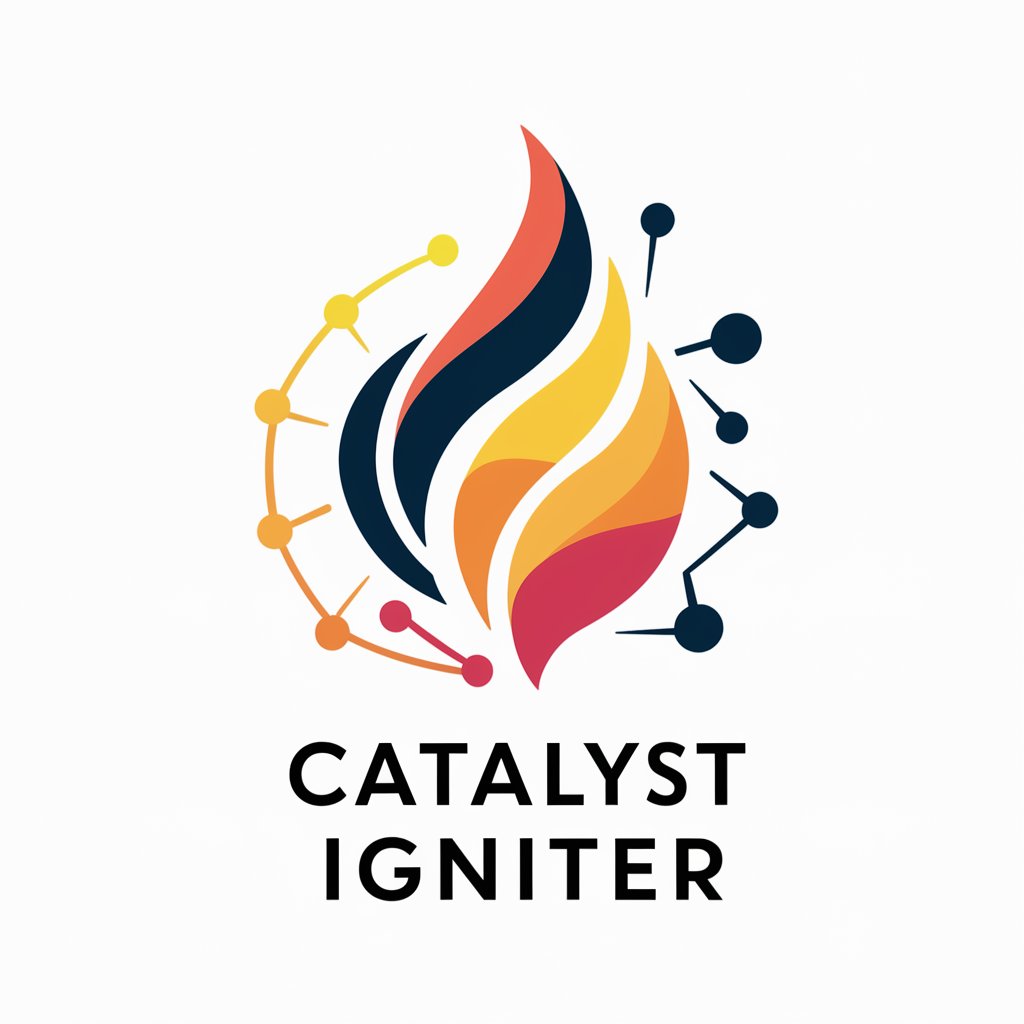
Lingo Raider
Translate WoW Terms into Russian Seamlessly

CareerPath
Empowering your career journey with AI

No Brainer Class Scheduler
Streamline your schedule with AI

Common Questions about Heterogeneous Catalysts Tutor
What is Heterogeneous Catalysts Tutor?
Heterogeneous Catalysts Tutor is a specialized AI-powered tool designed to assist students and professionals in understanding and applying the principles of heterogeneous catalysis in chemical engineering and related fields.
How can I find the most effective catalyst for a specific reaction?
Utilize the tutor to explore catalyst selection by detailing your reaction's substrates, desired products, and any known constraints. The tool will guide you through catalyst characteristics, performance criteria, and relevant case studies.
Can this tool help with academic research?
Absolutely. Whether you're drafting a paper, planning an experiment, or seeking to understand complex catalytic mechanisms, the tutor provides in-depth insights, literature references, and conceptual explanations to support your research.
Is Heterogeneous Catalysts Tutor suitable for industry professionals?
Yes. The tutor is equipped to assist with the development and optimization of catalytic processes, offering guidance on catalyst selection, reaction scaling, and troubleshooting in industrial applications.
What makes Heterogeneous Catalysts Tutor unique?
Its focus on heterogeneous catalysis, combined with AI-powered insights, allows for a deep dive into catalyst properties, reaction mechanisms, and process optimization, making it an invaluable resource for both academic and industrial users.
